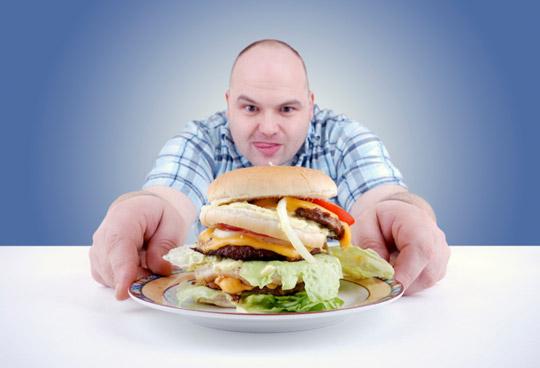You are here
High-fat diet linked to lung cancer risk
By Reuters - Aug 07,2017 - Last updated at Aug 07,2017

Photo courtesy of relax.ru
People who eat a lot of saturated fat — the “bad” kind of fat that is abundant in foods like butter and beef — are more likely to develop lung cancer than individuals on low-fat diets, a recent study suggests.
Compared to adults who did not get a lot of fat in their diets, people who ate the most total fat and saturated fat were 14 per cent more likely to get lung malignancies, the study found. For current and former smokers, the added risk of a high fat diet was 15 per cent.
While the best way to lower the risk of lung cancer is to not smoke, “a healthy diet may also help reduce lung cancer risk”, said study coauthor Danxia Yu of Vanderbilt University Medical Centre in Nashville, Tennessee.
“Specifically, our findings suggest that increasing polyunsaturated fat intake while reducing saturated fat intake, especially among smokers and recent quitters, may [help prevent] not only cardiovascular disease, but also lung cancer,” she said.
The American Heart Association recommends the Dietary Approaches To Stop Hypertension (DASH) diet or a Mediterranean-style diet to help prevent cardiovascular disease. Both diets emphasise cooking with vegetable oils with unsaturated fats, eating nuts, fruits, vegetables, low-fat dairy products, whole grains, fish and poultry, and limiting red meat and added sugars and salt.
“Those guidelines are the same for avoiding heart disease, stroke and diabetes, and I would say they are also exactly the same for helping with cancer prevention in general and lung cancer in particular,” said Dr Nathan Berger, a researcher at Case Western Reserve University and University Hospitals Cleveland Medical Centre who was not involved in the study.
“This doesn’t mean you need to throw away all the steak and butter in your freezer, but cutting back to once a week would be good for you,” Berger said in a phone interview.
For the current study, researchers examined data from 10 previously published studies in the United States, Europe and Asia that looked at how dietary fat intake influences the odds of lung malignancies.
Combined, the smaller studies had more than 1.4 million participants, including 18,822 with cases of lung cancer identified during an average follow-up of more than nine years.
Researchers sorted participants into five categories, from lowest to highest consumption of total and saturated fats. They also sorted participants into five groups ranging from the lowest to highest amounts of dietary unsaturated fats.
Overall, people who ate the most unsaturated fats were 8 per cent less likely to develop lung cancer than people who ate the least amounts, researchers report in the Journal of Clinical Oncology.
Substituting 5 per cent of calories from saturated fat with unsaturated fat was associated with a 16 per cent lower risk of small cell lung cancer and 17 per cent lower odds of another type of lung malignancy known as squamous cell carcinoma.
One limitation of the study is that dietary information was only obtained at one point, the authors note. This makes it impossible to track how changes in eating habits might influence the odds of cancer.
They also did not account for two other things that may contribute to cancer — sugar and trans fats, Glen Lawrence, a biochemistry researcher at Long Island University in Brooklyn, New York, said by email. Previous research has also found that unsaturated oils may increase the risk of certain cancers, added Lawrence, who wasn’t involved in the current study.
It is also possible that other bad eating habits, not fat, contribute to the increased risk of lung cancer, said Ursula Schwab of the Institute of Public Health and Clinical Nutrition at the University of Eastern Finland in Kuopio.
“We need antioxidants, vitamins and minerals as well as unsaturated fatty acids,” Schwab, who wasn’t involved in the study, said by e-mail. “A typical Western diet has a low content of these essential nutrients and a high content of saturated fat.”
Related Articles
PARIS — A health study came to the defence of certain dietary fats on Tuesday, adding fuel to a scientific row over low-fat guidelines that
Women who eat a lot of fat, particularly saturated fat, may be at higher risk of certain types of breast cancer, new research suggests.
For people recently diagnosed with type 2 diabetes, eating lots of olive oil, fish and whole grains slows progression of the disease more than restricting fat, according to a new analysis.
















